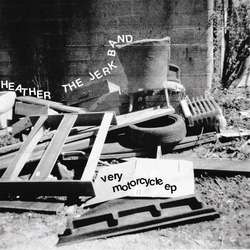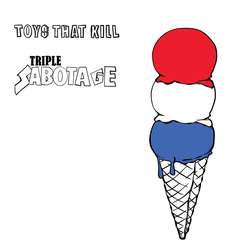Omega is the final testament to the instrumental indie/math/prog-rockers The Cancer Conspiracy. Recorded over four years ago, the album was left in limbo due to some unfortunately label circumstances. But even though the band has been disbanded for several years now, the music that comprises this album is not dated in the least.
Omega is made up of eight different musical movements, each of which is titled as a corresponding roman numeral. The album begins with "I," which is a saxophone-focused introduction of sorts with drummer Greg Beadle handling the skills on the horn. "II" follows and is definitely more upbeat than the preceding number. With the guitar noodling of Daryl Rabidoux taking the focus of the song, the song brings to mind the body of work from The Mars Volta, minus all the Latin-American influences.
The Cancer Conspiracy continues through the album with "III." The song is your run of the mill rock number showing signs of influence from the pioneers of the prog genre as well as indie greats like Fugazi, all while updating the sound pioneered by these artists so many years ago. "IV" sees the band implementing the use of programmed beats and what sounds like bongos. This is a welcoming sound to the album, giving it a little personality to distinguish the tracks from each other.
Things keep moving with "V," an enjoyable math-rock number. "VI" is another track that helps to create some variety on the album. Rabidoux works his magic by fueling the song with howling guitars while Beadle adds to the interludes' character with prancing piano notes.
"VII" is a nice meandering post-rock number with excellent basslines provided by Brent Franttini and twinkling guitars that brought to mind modern favorites This Will Destroy You and Explosions in the Sky. "VIII" closes out the album in fitting fashion with six minutes of guitar-driven indie rock that brings to mind the more spacey material from Cave In.
One noticeable difference from the band's previous outing, 2002's The Audio Medium is the lack of extensive liner notes. While that album's notes correlated a cover-up of a cancer cure to the suppression of real musical expression, Omega features nothing more than your typical credits. This is rather disappointing.
Even though several years have passed since the time when The Cancer Conspiracy were actually a band, the release of Omega is still relevant. Perhaps the most interesting aspect of this album is the fact of how much time has passed since it was recorded and how fresh it still sounds. Though it may not seem like it, this three-piece outfit has had a drastic influence on the indie music world with their willingness to experiment with multiple genres. Where Omega fits into the world of music may not be known just yet, but I definitely feel it is going to be an instrumental album in the development of many bands to come.



